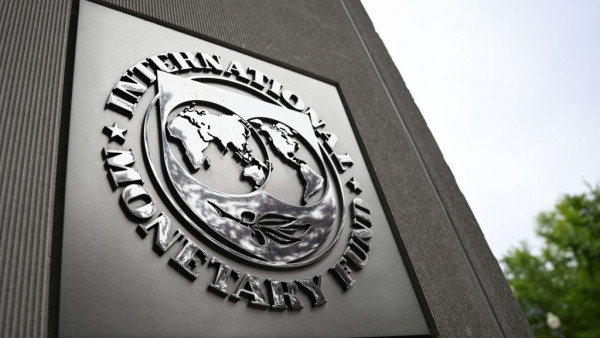Lebanon’s new government plans to approach the IMF for a loan with a pledge to restructure the country’s shattered financial system [Getty]
Lebanon will need to restructure its banking system before the European Union disburses 500 million euros in aid, a top EU official said on Friday.
Last year, the EU agreed to provide Lebanon with one billion euros in funding to reduce the flow of refugees into Europe.
Half of the money was paid out last August but the remainder will be subject to “some conditions,” EU Commissioner for the Mediterranean Dubravka Suica said during a visit to Lebanon.
“The main precondition is the restructure of the banking sector… and a good agreement with the International Monetary Fund,” she said after meeting Lebanese President Joseph Aoun.
Lebanon has suffered years of economic and financial turmoil since the financial system collapsed in 2019 amid a debt crisis caused by rampant government spending, widespread corruption, and financial engineering by the central bank.
Western countries and international financial institutions have long conditioned rescue packages on the government making far-reaching economic reforms, including restructuring the banking sector.
Lebanon reached a draft agreement with the IMF in 2022 but didn’t receive the much-needed funding after failing to deliver economic reforms.
The country’s new government is now planning to return to the IMF for a loan with a pledge to recapitalise the country’s banks, according to a report earlier this week.
Finance Minister Yassine Jaber has met with the Fund’s representative in Lebanon and emphasised the new government’s commitment to economic reform.
An IMF delegation is expected to visit the country in March to discuss the government’s reform agenda, Jaber said.
Jaber entered office earlier this month under a new government headed by Prime Minister Nawaf Salam. The government was formed after more than two years of political deadlock.
Fresh Israeli airstrikes in Lebanon
Israel launched fresh airstrikes on the Syrian-Lebanese border on Thursday night, targeting what it said were routes used by Hezbollah to smuggle weapons into Lebanon.
Several people were wounded in the attack, which destroyed a crossing in the Wadi Khaled area in north-eastern Lebanon, according to the Syrian Observatory for Human Rights.
An Israeli military spokesperson accused Hezbollah of committing a “flagrant violation” of the ceasefire accord and said it would continue to attack the Shia group.
Israel has continued to carry out airstrikes across Lebanon since the ceasefire came into effect on 27 November. The Lebanese government has accused it of breaching the truce agreement hundreds of times.
It also refused to fully withdraw its forces from Lebanon in accordance with the agreement and kept troops in five strategic locations inside south Lebanon.


